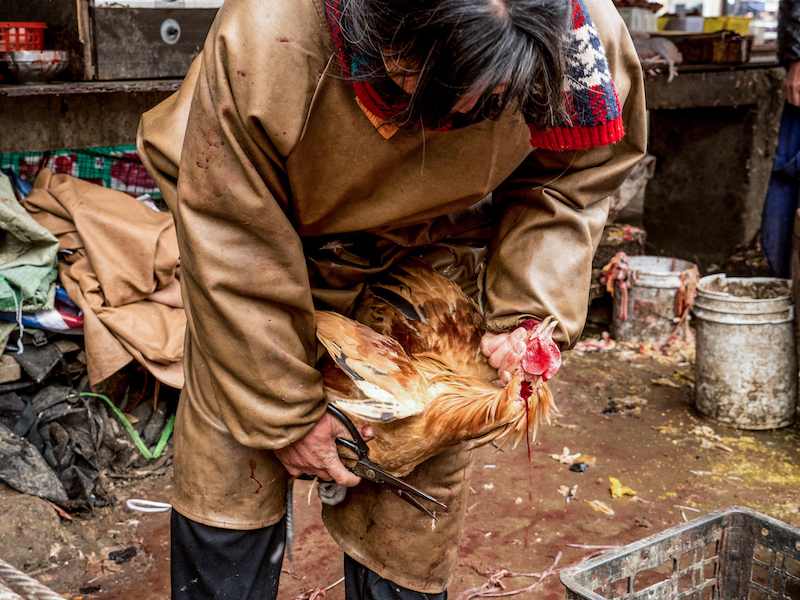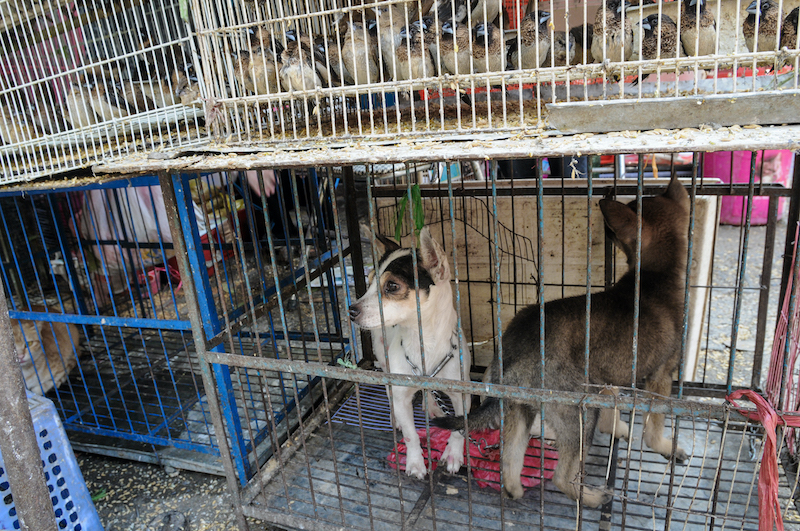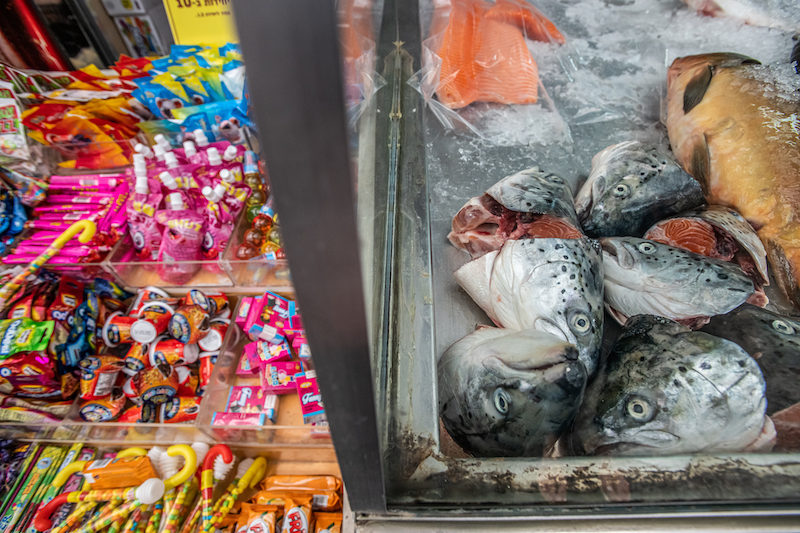UN INT Intro Text w/ Centered Large Responsive Image - *Important Note* You must UNLINK this shared library component before making page-specific customizations.
Update: April 13, 2021
The first domino has fallen! Since the start of the pandemic, PETA has pushed the World Health Organization (WHO) to call for the closure of live-animal markets worldwide. Well, it’s now happening: WHO is urging countries to suspend the sale of live mammalian wild animals in food markets as an emergency measure, saying that wild animals are a leading cause of emerging infectious diseases like COVID-19. We told you that a year ago! This is a good start but does nothing to stop frogs, snakes, chickens, and others from being sold, even though confining and killing them in filthy live-animal markets also contributes to the spread of disease. As long as live-animal markets remain open and any animal is sold, intelligent and sensitive beings will continue to suffer and humans will be at enormous risk. Thank you to everyone who took action below—please keep going: Share this alert with your friends and family and anyone else you know until WHO calls for a closure of all live-animal markets.
Original Post:
Before the COVID-19 outbreak, many people had never heard of a "wet market", which is believed to be the origin of the novel coronavirus. It's simply a market that sells live and dead animals – often of a variety of species – for human consumption.

© Kelly Guerin / We Animals
Variant Creutzfeldt-Jakob disease (vCJD), avian flu, swine flu, SARS, HIV, Ebola, and other diseases are linked to meat production or consumption. Not all of these come from live-animal markets – vCJD, for instance, can affect a person who has eaten certain body parts of a cow infected with bovine spongiform encephalopathy, or "mad cow" disease – but such markets, where stressed, injured, and sick animals are commonly caged in public areas, are perfect breeding grounds for diseases. In this video, Peter Li, an associate professor at the University of Houston–Downtown, states that at wet markets, "The cages are stacked one over another. Animals at the bottom are often soaked with all kinds of liquid. Animal excrement, pus, blood." Such conditions allow viruses to spread from one animal to another as well as to humans who come into contact with them.

© Jo-Anne McArthur / We Animals
Although the Huanan Seafood Wholesale Market in Wuhan, China, where the coronavirus is thought to have first infected humans, has closed and that country has banned the consumption and farming of "wild" animals (hopefully not only temporarily), it's important to note that diseases don't just affect animals humans have labelled as "wild". Many wet markets continue to operate throughout Asia, Africa, Australia, Europe, and the US.
Just as we don't want to be infected with or die of COVID-19, other animals don't want to suffer or be killed for food. A hen, for example, just wants to be left in peace so that she can teach calls to her chicks in their shells (much like how a human mother talks to her baby in the womb) and teach her young the ways of the world once they've hatched. And fish just want to be left alone so that they can protect their young, build nests, and swim free.

© Jo-Anne McArthur / We Animals
No matter which species they're peddling, live-animal meat markets will continue to put the human population at risk, as well as sentencing countless animals to a miserable death.
Join PETA in urging the World Health Organization to call for an end to live-animal meat markets.